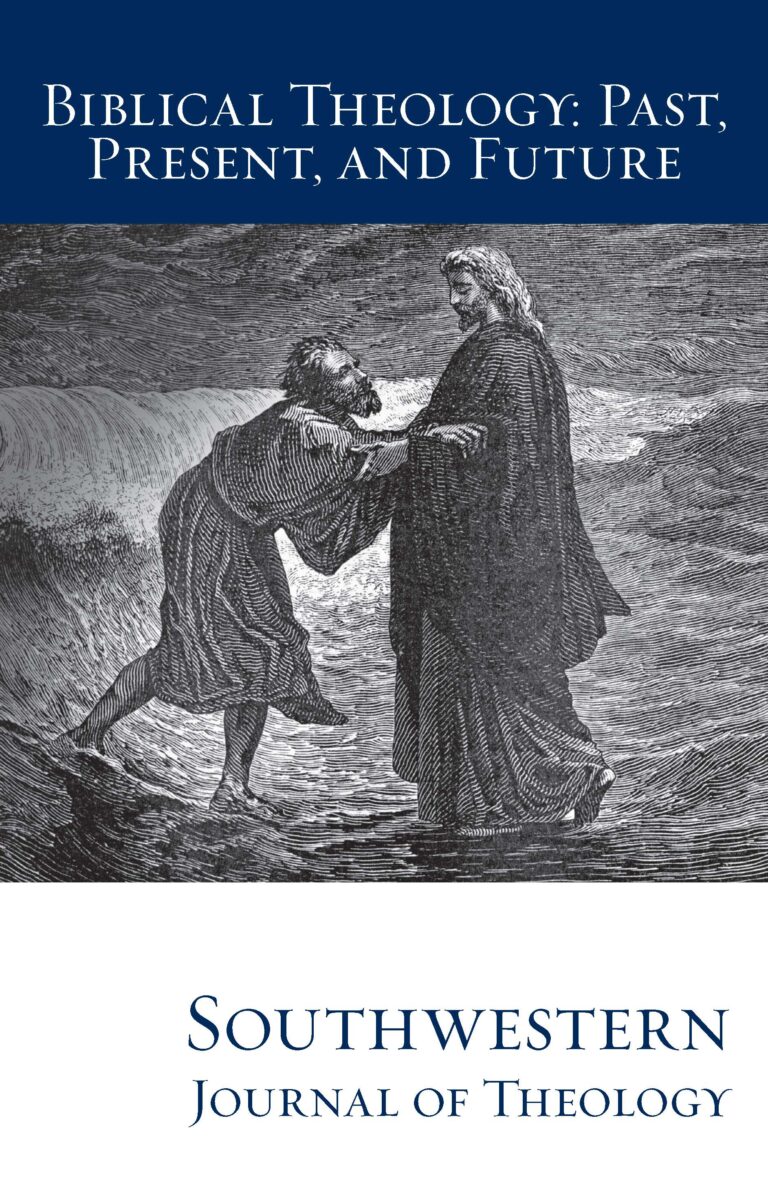
Biblical Theology: Past, Present, and Future (II)
Southwestern Journal of Theology
Volume 56, No. 1 – Fall 2013
Managing Editor: Terry L. Wilder
By Christopher W. Morgan. Phillipsburg, NJ: P&R Publishing, 2010. 218 pages. Softcover, $17.00.
Christians today are the living expressions of God’s heart toward the world. Though this biblical concept may be frightening for many leaders of the church who see Christians behaving badly, the reality is that God has charged every believer with the task of faithfully living-out the Christian message (the gospel) before a watching and spiritually needy world. Attempting to help each maturing believer walk more faithfully in tune with God’s heart, Christopher Morgan has written a comprehensive and intensely practical biblical exegesis of the book of James, insightfully subtitled Wisdom for God’s People.
As a continuation in the Explorations in Biblical Theology series, a reformed-perspective-driven series intending on addressing popular and needed biblical theology within the church, the book of James comes as the third installment following a rich exposition of Romans and Mark. On the heels of such foundational Biblical study in Romans and Mark within the series, the task fell to Morgan to write a practical theology for the church and community. Thus, Morgan writes in a fashion to render a practical outworking of useful theology in community with a keen adherence to Biblical exegesis. In short, Morgan accomplishes his task and produces a very helpful volume for the growing Christian desiring to live more like Christ.
A Theology for James contains many positive elements which are intended to help the reader (1) learn empowering Biblical theology, (2) reflect on newfound truths concerning God’s heart toward ministry, (3) apply these truths to daily life, (4) and even help direct others to learn the practical theology of James. Unique to this commentary, Morgan organizes the entirety of his text around the six major themes of James (wisdom, consistency, suffering, the poor, words, and the law). Instead of the expected chronological exegesis of the text, Morgan utilizes the theological themes within James to expound both exegetically and theologically on the major topics which James develops in his epistle. Also, unlike technical commentaries which assume the reader is adept with primary languages, Morgan translates the more critical phrases of the Greek text, allowing both the layperson and untrained clergy to benefit from the primary sense of each pericope. Exegeting each section of the text with clarity, Morgan ultimately takes each of James’ six biblical themes and demonstrates their spiritual connectivity as one source for a unified Biblical theology of the book.
Also helpful, Morgan includes a chapter comparing Paul’s theology with James’, demonstrating that the epistles in the New Testament core are both uniquely divine and inspired by God to advance a central unified (theme) message to the world. Further, in his book, Morgan unpacks how every Christian can apply the practical theology of James in a chapter he entitles Theology at Work. Using an encouraging balance of theological axioms to remember, Scripture to memorize, and pointed questions upon which to reflect, Morgan turns his exegetical commentary into a practical field manual on the daily Christian life. In this combined commentary and workbook, every layman along with those in the ministry will benefit from the practical questions to answer or use as a discussion guide for small groups.
In this volume, Morgan exerts outstanding effort not only developing the critical theology which makes the book of James so insightful to the human heart, but he brilliantly exploits the truths of James to help the growing Christian daily advance their walk into Christ-likeness. The fact that this little volume is affordable, conservative, theologically-driven, and intensely practical for personal study or groups make this particular book a great addition to every theologian’s, pastor’s, or serious layman’s library.





